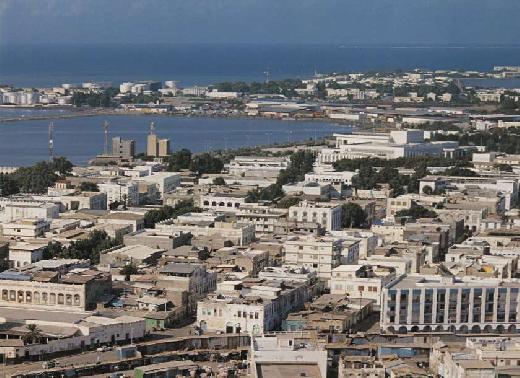How to Adopt from Djibouti Part 2
This page is for steps 4-5 of How to Adopt from Djibouti. To learn about steps 1-3 please read How to Adopt from Djibouti. To learn about step 6 please read How to Adopt from Djibouti Part 3.
4. Adopt or Gain Legal Custody of Child in Djibouti
The process for finalizing the adoption (or gaining legal custody) in Djibouti generally includes the following: Role of Adoption Authority: All adoptions are facilitated through the Tribunal de Première Instance de Djibouti, which serves as Djibouti's adoption authority.
- Role of the Court: The court will issue final paperwork stating that the child has been adopted and that legal custody has been transferred to the prospective adoptive parents.
- Role of Adoption Agencies: There are no adoption service providers in Djibouti to assist with an adoption.
- Adoption Application: Once a child has been identified, adoption procedures must be initiated with a written request from the prospective adoptive parent(s) to the President of Tribunal de Première Instance to open an adoption case on their behalf. The court has two responsibilities: it must verify whether the necessary legal conditions have been met, and that the adoption is in the best interest of the child. To that effect, it is mandatory that adoptive parent(s) attach the U.S. documents listed in the section below to their application. The court can order an additional social investigation report to complement the one already attached to the initial request (see below), and one or more types of specific medical examinations. The clerk of the District Court will then forward the request to the police for a background check to be performed (if the prospective adoptive parents are resident in Djibouti).
- Procedures for a child with identified biological parent(s): The biological parents must agree to irrevocably relinquish their parental rights (i.e. a plénier adoption). The biological parents must appear before the court with their identification and the child's birth certificate and sign a consent document. A three-month appeal period follows, during which time the biological parents may reclaim their parental rights or the prospective adoptive parents may decide to cancel the adoption. At the end of that period, if no appeal is made, the prospective adoptive parents must submit a request to the court to continue the process, at which time the court will fix a hearing date. At the hearing, the judge will rule whether to grant a delegation of parental authority, which technically shifts parental authority from the biological to the adoptive parents. If the adoptive parents are residents of Djibouti, or if they plan to stay for some time, they may be granted temporary custody of the child, to allow the child to physically live with them. The biological parents then have an additional two-month window within which they may reclaim the child. If they do not, the adoptive parents have to submit to the court a request for finalizing the adoption. At the hearing, the court will make a final ruling to grant the adoption. However, for an additional two months the Public Ministry (Office of the District Attorney) or any other concerned individual (family member), excluding the natural parents, may appeal for reversal if they can provide “serious evidence” that the adoption will adversely affect the child. NOTE: The court can refuse to grant an adoption and may order the adoptive parents not to break the child's bonds with its biological family. The judgment is always given in a public hearing. Whether the adoption is approved or rejected, the decision can be appealed, and the ensuing appeal may also be subject to a final appeal at the Supreme Court.
- Procedure for an abandoned child with unknown parents: The process is similar to that of a child with identified biological parents, excluding steps pertaining to the biological parents. Instead, after the prospective adoptive parents have submitted a written request to the court, the court will order a police investigation to try and find the biological parents and establish their identity (this may take up to a month). If biological parents cannot be found and no one claims the child, the police will deliver a certificate of abandonment to the court, after which the court will proceed with the case.
- Time Frame: It may take a year or more from the time the adoption application is submitted to the Tribunal de Première Instance until the prospective adoptive parents receive the final documents. Factors bearing on the length of time may include court-ordered investigations, parents' citizenship, court calendar, appeals, and individual case anomalies.
- Adoption Fees: The Government of Djibouti processes all adoptions. All procedures undertaken by the court (Adoption Authority) are free of charge. Prospective adoptive parents should expect to pay for any/all required medical examinations for the child, as well as for their own travel expenses. The Government of Djibouti processes all adoptions.
- Documents Required: Police clearance (indicating no arrest record), home study report, proof of adequate financial means and stability (last three pay slips, tax return, etc.). NOTE: Additional documents may be requested.
- Authentication of Documents: You may be asked to provide proof that a document from the United States is authentic. If so, the Department of State, Authentications Office may be able to assist.
5. Apply for the Child to be Found Eligible for Orphan Status
After you finalize the adoption (or gain legal custody) in Djibouti, the Department of Homeland Security, U.S. Citizenship and Immigration Services must determine whether the child meets the definition of orphan under U.S. immigration law. You will need to file a Form I-600, Petition to Classify Orphan as an Immediate Relative.
Back to Adopting from Djibouti
